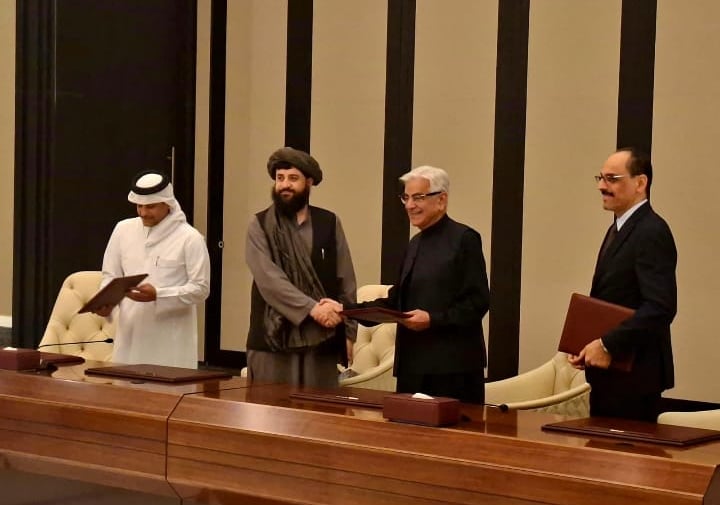Pakistan and Afghanistan Agree to Ceasefire After Doha Peace Talks
Pakistan and Afghanistan reach a historic ceasefire in Doha after deadly border clashes. A new hope for peace and stability in South Asia.
Raja Awais Ali
10/19/20252 min read


Pakistan and Afghanistan Agree to Ceasefire After Doha Peace Talks
After a week of escalating border clashes, Pakistan and Afghanistan have reached a mutual ceasefire agreement following crucial peace talks in Doha, mediated by Qatar and Turkey. The decision marks a significant step toward regional stability after days of intense violence along the Durand Line that killed dozens and wounded hundreds of soldiers and civilians.
According to Qatar’s Foreign Ministry, both nations agreed to implement an immediate ceasefire and establish mechanisms to verify and prevent future border incidents. The Doha meeting was attended by high-level officials from both sides — Pakistan’s Defense Minister Khawaja Muhammad Asif and Afghanistan’s Defense Minister Mullah Muhammad Yaqoob — who jointly signed the declaration.
In a joint statement released after the meeting, both parties emphasized their commitment to peaceful dialogue, mutual respect for sovereignty, and the importance of preventing militant groups from exploiting border regions. Follow-up meetings are expected in the coming weeks to ensure full implementation of the ceasefire terms.
Pakistan claims that militant groups operating from Afghan soil have carried out multiple cross-border attacks in recent months, posing a direct threat to its national security. The Afghan authorities, however, deny the allegations, saying that Pakistan’s airstrikes inside Afghan territory violate sovereignty and risk worsening already fragile relations.
The recent escalation began earlier this month when border skirmishes turned into full-scale clashes involving artillery and drone strikes. After a brief 48-hour temporary truce, both nations agreed to extend the ceasefire, leading to this broader peace understanding in Doha.
Regional analysts see the development as a positive turning point for South Asian stability, though they caution that long-standing issues such as border control, militant safe-havens, and political mistrust remain unresolved. Experts also warn that unless both sides act swiftly to implement confidence-building measures, the ceasefire could prove fragile.
Qatar and Turkey, who jointly facilitated the dialogue, hailed the agreement as a “milestone for peace” and urged both nations to uphold their commitments in good faith. The international community has also welcomed the move, calling it an opportunity to reduce tensions and restore trust between the two neighboring Islamic nations.
Whether this truce becomes the foundation for lasting peace or another temporary pause in decades of hostility remains to be seen. For now, the world watches closely as Pakistan and Afghanistan attempt to turn a fragile ceasefire into genuine reconciliation.
Stay informed with the latest national and international news.
© 2025. All rights reserved.